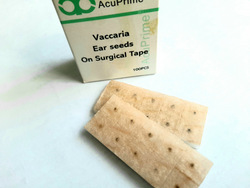Introduction
Although distinct from each other, these two conditions are remarkably common, and a great many people will experience one or both at some point in their lives.
Definitions are broad, but on the whole, we might say stress is perceived when we feel under an unwelcome amount of pressure (time, commitments, work, money etc). It may cause symptoms ranging from brooding resentment to irritability, or headaches to indigestion.
Anxiety on the other hand, is an emotion often physically experienced in the region of the heart. It may be accompanied by an awareness of the heart beating, a rapid or pounding heart, a vague unease in the chest, or shallow, rapid breathing. Anxiety can undermine self-confidence, and people can be left feeling it is holding them back in their lives (career progression, travel, meeting new friends etc). The physical symptoms which come with stress and anxiety, can create worry which then leads to more stress and further worry.
Research Evidence
Anxiety
Research suggests acupuncture is an effective treatment for anxiety. Recent systematic reviews of the evidence have found consistently positive results in trials of acupuncture for anxiety. They were able to reach stronger conclusions than earlier UK reviews, due to more accumulated data. Hence acupuncture is seen as a promising treatment option that might help to reduce the use of drugs. Psychiatric health professionals have also rated it as effective and safe.
The British Acupuncture Council partnered with Anxiety UK, the country’s leading anxiety disorders charity, to launch a joint research project and increase awareness of how traditional acupuncture can help people with anxiety disorders. Preliminary results on 30 patients indicated that its effectiveness was at least as good as that seen with psychological therapies such as CBT.
Stress
When we are under stress on the other hand, an area of the brain called the hypothalamus releases certain neurochemicals, and research shows that acupuncture can calm this response. Acupuncture has also been shown to increase the release of endorphins, the body’s own ‘feel-good’ chemicals, which play a role in the regulation of stress responses such as pain, heart rate and blood pressure. These effects of acupuncture probably lie wholly or partly behind its ability to reduce anxiety.
Post-Traumatic Stress Disorder (PTSD)
There is also post-traumatic stress disorder (PTSD). The charity ptsduk recommends patients consider acupuncture. In a systematic review of seven randomised trials, there were significant differences favouring acupuncture (versus any comparison group) in PTSD symptoms, at post-intervention and at longer follow-up. A before and after observational study demonstrated very large improvements in PTSD outcome measures, such that none of the patients completing the course of six sessions was still classed as having PTSD. The participants were all British forces veterans. Acupuncture is also much used for treating US veterans, and for serving personnel within the military.
Acupuncture for Stress

Taking stress firstly, I find it plays a role in quite a few conditions I see. It may have been a causal component in the development of a problem eg. chronic headaches which started during a particularly stressful year, or it may noticeably aggravate pre-existing conditions as diverse as back pain, IBS (irritable bowel syndrome), psoriasis or depression.
It helps if when you come, you are able to share as much as you can about the causes of your stress, whether it be work, caring for relatives, family tensions, lack of free time, or any other experience you are going through. I will be interested to learn how it is affecting you in all its manifestations eg. irritability, constantly upset by small things, poor sleep, digestive disturbances, headaches, raised blood pressure.
As usual, we will cover your health in the wider sense too, and take account of any other concerns or conditions. I will formulate a treatment plan, and together we will discuss some coping strategies appropriate to your circumstances. These may involve exercise, relaxation, delegation of some responsibilities etc, and we will monitor their success. My aim overall though, is that you shouldn’t just feel less stressed whilst you are having a course of treatment, but that you should actually carry away with you, new ways of living your life, which lead to a permanent change in the way you feel.
Acupuncture for Anxiety
Moving on to anxiety, you may well have identified particular situations which arouse it eg. knowing you are going to have to speak in a meeting at work. Anxiety, like stress, also has the capacity to affect sleep, and so this aspect of your life may need some help too. I shall ask all about how the anxiety began, and by combining this information with your answers to my questions about your general health, I can devise a treatment plan.
Sometimes this might include some dietary advice, emphasising particular foods to include in your daily menu. We may need to discuss any possible nutrient deficiencies, sleep, exercise, social life, alcohol intake, and drugs both prescribed and recreational. Diet and nutrient considerations may include B vitamins, magnesium, zinc, gut health/biome, and dietary protein.
Additionally, since our ears have many useful acupuncture points on them, I might if you wish, affix a tiny seed over an appropriate point. It will often go unnoticed by others, or be covered by your hair, but when you locate it with your finger and squeeze it against the ear, you may find it quite calming. I frequently give these to people who have a fear of flying, to aid them at the airport and on board the plane.
Anxiety is often a fairly long-term pattern, and can range from mild to severe. It might have gone away for several years, only to re-appear at a point in life when you are vulnerable, such as in the year or so following pregnancy and childbirth. On the whole though, I expect to have to treat for two to three months, on a weekly basis. An exception would be the fear of flying example above, where if you have got as far as already booking a trip, then a few treatments beforehand might suffice to give you a holiday, as opposed to an ordeal.
 For both stress and anxiety, I may well also offer you ear seeds. These are tiny seeds placed over acupuncture points on your ear, and held in place with a small square of translucent tape. They usually stay in place for up to a couple of weeks and you can stimulate them by squeezing them whenever you feel the need to regain your sense of calm.
For both stress and anxiety, I may well also offer you ear seeds. These are tiny seeds placed over acupuncture points on your ear, and held in place with a small square of translucent tape. They usually stay in place for up to a couple of weeks and you can stimulate them by squeezing them whenever you feel the need to regain your sense of calm.
6 Simple Self-Help Measures
When you are stressed, it may also be helpful to stop and take stock. There are six simple steps we can take, which have been found to make us happier, and some of these are helpful for anxiety too:
 1) Be Curious Notice that there is beauty, interest and novelty all around. Look out for the lambs in the fields as you drive by, or for that first bluebell in the spring hedgerow. Glance up at the hidden gems of architecture high above familiar streets.
1) Be Curious Notice that there is beauty, interest and novelty all around. Look out for the lambs in the fields as you drive by, or for that first bluebell in the spring hedgerow. Glance up at the hidden gems of architecture high above familiar streets.
2) Be Active Physical activity has a positive impact on stress, depression and anxiety. Take up some exercise: walk to the station, take a lunchtime stroll, join a dance class etc.

3) Continue Learning Learn to speak a foreign language, play a musical instrument, or master a new hobby
4) Connect Happy people have stronger social relationships. Invest a little time in friends, family and colleagues. Take a few moments to chat with the postman or the sales assistant in a shop you go to regularly.
5) Give Look out for opportunities to give something to your fellow humans: you could express appreciation, do someone a favour, or even just give a smile.
6) Smiling improves our mood. It is an example of positive body language, which affects the brain and hence how we feel. Spend time with smiley people and you will naturally mirror their expressions.
Please feel free to call me to discuss your situation. Below you can read the results of some of the research which has been undertaken into acupuncture for anxiety and stress. The trials vary in quality, but systematic reviews and randomised controlled trials are generally considered to provide the highest quality evidence. If you would like to read more about evidence quality, I would refer you to the British Acupuncture Council’s description of the evidence pyramid.
